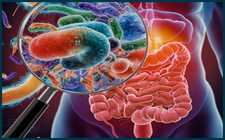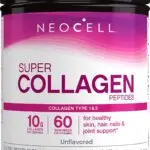
Table of Contents
Introdution
In an age where digestive issues affect millions of Americans, understanding the crucial role of probiotics for gut health has never been more important. The human gut contains trillions of bacteria forming a complex ecosystem known as the gut microbiome. This intricate balance of microorganisms influences not just our digestive function, but our overall wellness, immunity, and even mental health.
As digestive discomfort becomes increasingly common in our modern world, more people are turning to specialized supplements like Gut Vita to restore harmony to their gut biome. But what makes certain probiotics effective, and how does a balanced approach to gut health lead to lasting improvements in digestive wellness?
This comprehensive guide explores the science of probiotics, their impact on the gut microbiome, and how formulations like Gut Vita are changing the approach to digestive health through natural, multi-faceted support.
Ready to transform your digestion naturally? Try Gut Vita and support your gut from the inside out!
Click Here to Buy Now
Understanding the Gut Microbiome: Your Body’s Internal Ecosystem
The human digestive tract houses approximately 100 trillion microorganisms—a population that exceeds the number of cells in the human body. This collection of bacteria, fungi, viruses, and other microbes is collectively known as the gut microbiome, and it plays a crucial role in numerous bodily functions.
The Importance of Microbial Diversity
Research has consistently shown that a diverse gut microbiome correlates with better health outcomes. Dr. Jeff Collins, one of the minds behind Gut Vita, explains: “A healthy gut should contain a wide variety of beneficial bacteria. It’s not just about having probiotics—it’s about having the right balance and diversity of microorganisms.”
This diversity helps with:
- Breaking down food components our bodies cannot digest alone
- Producing essential vitamins like B12, K, and certain B vitamins
- Creating short-chain fatty acids that nourish the intestinal lining
- Training and regulating our immune system responses
- Protecting against harmful pathogens that could cause infection

Signs of an Imbalanced Gut Microbiome
When the gut microbiome falls out of balance—a condition known as dysbiosis—numerous symptoms can emerge:
- Irregular bowel movements (constipation or diarrhea)
- Persistent bloating and gas
- Abdominal discomfort after eating
- Food intolerances that seem to worsen over time
- Unintentional weight changes
- Fatigue and low energy levels
- Skin issues like eczema or unexplained rashes
- Mood disturbances including anxiety or depression
These symptoms signal that the gut requires attention, often in the form of dietary changes, lifestyle modifications, and potentially, high-quality probiotic supplementation.
The Science of Probiotics: Beneficial Bacteria for Digestive Health
Probiotics are live microorganisms that provide health benefits when consumed in adequate amounts. Unlike many supplements that deliver passive nutrients, probiotics are active participants in your digestive system, helping to populate the gut with beneficial bacteria.

How Probiotics Support Digestive Function
Probiotics work through several mechanisms to improve gut health:
- Competitive exclusion: By occupying space and consuming resources, beneficial bacteria prevent harmful microbes from establishing themselves.
- Antimicrobial compound production: Many probiotic strains produce natural antibacterial substances that inhibit pathogen growth.
- Immune modulation: Certain probiotics communicate with immune cells in the gut lining, helping to regulate inflammatory responses.
- Barrier integrity enhancement: Some strains strengthen the intestinal barrier, preventing “leaky gut” issues where substances inappropriately cross into the bloodstream.
- Digestive enzyme production: Certain probiotics produce enzymes that help break down food components, improving nutrient absorption.
Not All Probiotics Are Created Equal
The effectiveness of probiotics depends significantly on several factors:
- Strain specificity: Different probiotic strains have different effects. Lactobacillus and Bifidobacterium species are among the most thoroughly researched with documented benefits.
- Viability: Probiotics must survive the harsh acidic environment of the stomach to reach the intestines alive.
- Quantity: Most research indicates that probiotics should be consumed in amounts of at least 1 billion CFU (colony-forming units) per day to be effective.
- Formulation quality: The manufacturing process, storage conditions, and delivery mechanism all affect whether probiotics remain viable until they reach their destination in the gut.
Professor Vanco Rodriguez, a food scientist involved in Gut Vita’s development, notes: “When selecting a probiotic supplement, it’s crucial to consider not just the presence of beneficial bacteria, but their ability to survive and thrive in the gastrointestinal environment.”
Take control of your gut health today—experience the power of probiotics with Gut Vita.
Click Here to Buy Now
Introducing Gut Vita: A Comprehensive Approach to Gut Health
Unlike many digestive supplements that focus solely on one aspect of gut function, Gut Vita takes a holistic, three-step approach to digestive wellness. This comprehensive strategy addresses not just symptoms, but the underlying imbalances that can lead to digestive discomfort.
The Three-Step Process to Digestive Wellness
Gut Vita’s formula works through a carefully orchestrated sequence:
Step 1: Gentle Waste Elimination
Before beneficial bacteria can properly establish themselves, the digestive tract needs to be cleared of accumulated waste and toxins. Gut Vita contains natural fibers and cleansing compounds that help:
- Facilitate the movement of waste through the intestines
- Absorb and remove toxins that can disrupt gut function
- Reduce bloating and discomfort associated with intestinal buildup
- Create an environment where beneficial bacteria can thrive

Key ingredients in this phase include psyllium husk, bentonite clay, and flaxseed powder—all known for their gentle cleansing properties.
Step 2: Digestive Tissue Support
The second phase focuses on nourishing and strengthening the digestive tract itself. This includes:
- Supporting the integrity of the intestinal lining
- Encouraging healthy muscle contractions for proper motility
- Calming inflammation that can lead to digestive discomfort
- Improving nutrient absorption capacity

Aloe vera and black walnut are particularly important in this phase, providing soothing support to the digestive tissues while promoting healthy function.
Step 3: Microbiome Restoration and Balance
The final phase introduces high-quality probiotics to repopulate the gut with beneficial bacteria. Gut Vita’s proprietary blend includes four specialized probiotic strains selected for their:
- Ability to survive stomach acid and bile salts
- Documented benefits for digestive function
- Capacity to establish colonies in the intestines
- Synergistic relationships with other beneficial microbes

These live bacterial cultures help restore balance to the gut microbiome, promoting long-term digestive wellness rather than simply addressing immediate symptoms.
The Key Components of Gut Vita’s Microbiome Support
Gut Vita’s effectiveness stems from its carefully balanced formulation of fiber, prebiotics, probiotics, and digestive supportive compounds.
Fiber-Rich Components: Fuel for Beneficial Bacteria
Several ingredients in Gut Vita provide essential fiber that serves as food for beneficial gut bacteria:
Glucomannan – This water-soluble fiber from the konjac plant absorbs water in the digestive tract, promoting satiety and supporting regular bowel movements. Research suggests it can help maintain healthy cholesterol levels while feeding beneficial gut bacteria.
Apple Pectin – A type of soluble fiber found in apples, pectin serves as an excellent prebiotic, nourishing beneficial bacteria in the gut. It also helps regulate transit time through the digestive system and supports the removal of certain toxins.
Psyllium Husk – Known for its exceptional water-absorbing capacity, psyllium provides gentle bulk to stool, making it easier to pass. It simultaneously serves as food for beneficial bacteria and helps maintain regularity.
Oat Bran Powder – Rich in beta-glucans, oat bran promotes the growth of beneficial Bifidobacteria in the gut while helping maintain healthy cholesterol levels and blood sugar balance.
Soothing and Supportive Elements
Aloe Vera – Beyond its topical soothing properties, aloe vera works internally to calm digestive tissues and reduce inflammation. Research suggests it may help maintain the mucosal lining of the intestine and promote balanced gut bacteria populations.
Bentonite Clay – This natural mineral compound can bind to and help remove toxins from the digestive tract. By doing so, it creates a cleaner environment where beneficial bacteria can flourish.
Prune Powder – Beyond its gentle laxative effect, prunes contain antioxidants and phenolic compounds that support gut health and microbial diversity.
The Probiotic Foundation: Live Beneficial Bacteria
Gut Vita contains a proprietary blend of four research-backed probiotic strains. While the full details of the proprietary blend are not disclosed, typical beneficial strains for digestive health include:
- Lactobacillus acidophilus – Helps maintain the acidic environment needed to prevent pathogen overgrowth
- Bifidobacterium longum – Supports immune function and helps digest complex carbohydrates
- Lactobacillus plantarum – Produces antimicrobial substances that help control harmful bacteria
- Bifidobacterium bifidum – Supports the integrity of the intestinal barrier
Dr. Harold Baker, a gut health researcher involved in Gut Vita’s development, explains: “We selected probiotic strains with complementary functions to ensure a comprehensive approach to microbiome support. Each strain plays a unique role in restoring and maintaining gut balance.”
Real-World Results: How Probiotics for Gut Health Transform Lives
While scientific evidence supports the benefits of probiotics, the real test of any supplement is how it performs for actual users. Gut Vita has accumulated numerous testimonials from individuals experiencing significant improvements in their digestive wellness.
Michelle’s Journey to Digestive Comfort
After struggling with digestive issues for over 30 years, Michelle from Oregon reported noticeable improvements within just one week of starting Gut Vita. “My tummy no longer feels tight and bloated, and I feel so much more at ease,” she shared. “My bowel movements are now predictable and easier, which has given me back a sense of control I haven’t had in decades.”
Darryl’s Experience with Enhanced Regularity
Darryl from Toronto described how Gut Vita transformed his digestive rhythms: “I now go 2-3 times a day, and mornings no longer feel as heavy or slow. It’s been such a relief to find something so gentle yet clearly effective. I truly feel lighter and more energized throughout the day.”
Sally’s Victory Over Bloating
For Sally from San Francisco, bloating had become a constant companion until she discovered Gut Vita. “Within days, I felt more regular and ‘lighter’ in a way that’s hard to describe—things just started flowing more easily. And after a few weeks, the bloating I had been dealing with started to ease up. This has made a huge difference in how I feel day to day.”
These testimonials reflect patterns observed in scientific studies of probiotic supplementation, where improved regularity, reduced bloating, and enhanced comfort are commonly reported benefits.
Maximizing the Benefits: How to Support Your Gut Microbiome
While high-quality probiotics like those in Gut Vita provide significant support for the gut microbiome, their effects can be amplified through complementary lifestyle practices.
Dietary Practices That Enhance Probiotic Effectiveness
- Consume diverse plant foods – Aim for 30+ different plant foods weekly to support microbiome diversity.
- Include fermented foods – Yogurt, kefir, sauerkraut, kimchi, and other fermented foods contain natural probiotics that complement supplement forms.
- Prioritize fiber-rich foods – Beans, lentils, whole grains, fruits, and vegetables provide prebiotic fiber that feeds beneficial bacteria.
- Limit artificial sweeteners and highly processed foods – These can disrupt the balance of gut bacteria and promote inflammation.
- Stay hydrated – Adequate water intake helps fiber work effectively in the digestive system.
Lifestyle Factors That Support Gut Health
- Manage stress – Chronic stress negatively impacts gut bacterial composition. Practices like meditation, yoga, or deep breathing can help maintain microbiome balance.
- Prioritize sleep – Poor sleep disrupts gut bacteria ratios and increases intestinal permeability. Aim for 7-9 hours of quality sleep nightly.
- Exercise regularly – Moderate physical activity promotes microbiome diversity and healthy gut function.
- Limit unnecessary antibiotics – When medically necessary, antibiotics save lives, but judicious use helps preserve gut bacterial diversity.
- Get outdoors – Exposure to nature increases our contact with diverse microbes, potentially enhancing our microbiome diversity.
Choosing the Right Probiotic Supplement for Your Needs
With countless probiotic supplements on the market, selecting the right option can be challenging. Here are key factors to consider when evaluating products like Gut Vita:
Quality Indicators for Probiotic Supplements
- Manufacturing standards – Look for products made in FDA-registered facilities following Good Manufacturing Practices (GMP), as Gut Vita is.
- Strain specificity – Quality supplements clearly identify the specific bacterial strains included, not just general categories.
- Viability guarantees – Better products guarantee potency through the expiration date, not just at manufacturing.
- Research backing – Effective formulations use strains with scientific evidence supporting their benefits.
- Complementary ingredients – Superior supplements like Gut Vita include prebiotics and other supportive compounds that enhance probiotic effectiveness.
Understanding Dosage and Duration
For most individuals, probiotic benefits typically begin to emerge within 2-4 weeks of consistent use. However, establishing a truly balanced gut microbiome may take 3-6 months or longer, especially for those with long-standing digestive issues.
Frank Adams, who developed Gut Vita after his own digestive health crisis, advises: “Consistency is key with probiotic supplementation. Your gut microbiome didn’t become imbalanced overnight, and restoring it takes time and patience.”
Safety Considerations: When to Consult a Healthcare Provider
While probiotics are generally considered safe for most individuals, certain situations warrant professional guidance:
- If you have a compromised immune system
- If you have certain serious intestinal disorders
- Before giving probiotics to very young children
- If you’re undergoing treatment for a serious medical condition
- If you take prescription medications that might interact with supplements

As with any supplement, the 60-day money-back guarantee offered with Gut Vita provides an opportunity to evaluate its effectiveness for your specific needs with minimal risk.
Conclusion: The Future of Probiotics for Gut Health
As our understanding of the gut microbiome continues to evolve, the importance of probiotic support becomes increasingly clear. Products like Gut Vita represent a more sophisticated approach to digestive wellness—one that recognizes the complex interplay between our bodies, the bacteria that inhabit them, and the many factors that influence this relationship.
By combining high-quality probiotics with supportive fibers, soothing botanicals, and gentle cleansing compounds, Gut Vita offers a comprehensive solution for those seeking to improve their digestive function and overall wellbeing through microbiome support.
The growing body of research on probiotics for gut health suggests we’re only beginning to understand the full potential of these beneficial microorganisms. As science advances, we can expect even more targeted and effective approaches to supporting the incredibly important ecosystem within our digestive systems.
For the millions of Americans struggling with digestive discomfort, the message is clear: relief may be possible through a balanced, microbiome-centered approach that addresses not just symptoms, but the underlying harmony of the gut environment itself.
Disclaimer: This article is for informational purposes only and does not constitute medical advice. Always consult with a qualified healthcare provider before starting any new supplement regimen, especially if you have existing health conditions or take medications.
You’re like this:








